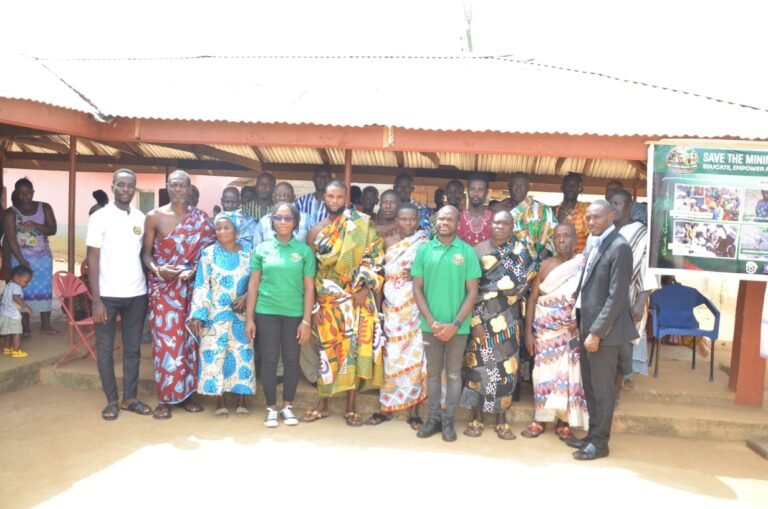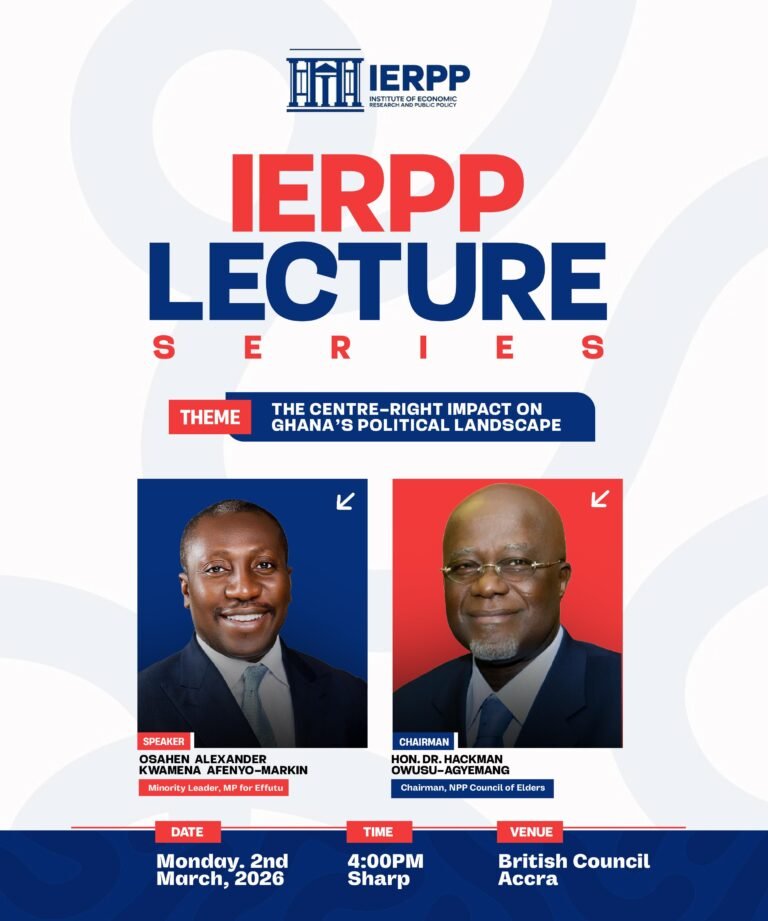
Some NEIP and Prisons officers after the launch

As part of efforts aimed at promoting rehabilitation and reintegration in the country’s prisons, the National Entrepreneurship and Innovation Programme (NEIP) and the Ghana Prisons Service have launched a groundbreaking initiative aimed at equipping over 1,240 prisons officers and inmates with valuable skills in various light manufacturing areas and entrepreneurship.
The programme, which is dubbed “Entrepreneurship for Restoration”, will also provide starter packs and kits to enable them engage in productive and sustainable production activities.
Launching the programme at the Ghana Prisons Service Headquarters at Cantonments, Accra, the Minister of Interior, Ambrose Derry, expressed his excitement about the programme, saying “it will mark the beginning of a life changing journey in the lives of the 15,000 young inmates in the country’s prisons”.
Mr Derry pointed out that about 82% of inmates in Ghana’s prisons are youth between the ages of 18 and 35 years. The Minister, therefore, observed that, on a broader scale, the beneficiaries of the programme will be contributing to the longer-term strategic vision of consolidating the country’s middle-income status and building an industry driven economy.

The collaboration
He stressed that the collaboration between the NEIP and the Ghana Prisons Service represents a significant step towards creating an inclusive society that values and supports the rehabilitation and reintegration of its citizens. By providing skills training, entrepreneurship education and starter packs, he said, the initiative will help to break the cycle of recidivism, and pave the way for a brighter future for prisons officers and inmates alike.
He was optimistic that the effort would inspire similar partnerships and initiatives across the country, promoting a more sustainable and prosperous Ghana for all.
The Chief Executive Officer of the NEIP, Kofi Ofosu Nkansah, explained that the light manufacturing areas for the training include soap and detergents making (bar soaps, shower gels, liquid soaps, medicated soaps, afterwash etc). He also mentioned grains and cereals processing and packaging for products like tom brown, rice soy, millet/sorghum mix, weetabix, among others.
Mr Ofosu Nkansah cited juice processing and packaging from all local fruits, nuts, tubers and legumes processing and packaging for groundnut paste, chocolate spread etc. Additionally, he mentioned the production of local non-alcoholic drinks like “aobolo, asana, atadwe ginger drink, lamuji, saamea”. etc,
According to him, there would also be production of yoghurt and edible oils from palm oil and coconut oil, and cosmetics to making various body lotions and creams.

Grants, loans
He announced that NEIP will provide grants and loans as working capital for officers who had been trained for them to set up these businesses properly as well as working capital to inmates for their set up, upon their discharge from the prisons.
He stated that the “grants and loans will be provided under its Youth in Innovative Agric Disbursement for those who did fruit juice processing and the Presidential Startup support and YouStart for the other products”.
The NEIP CEO further drew attention of the gathering to the samples of items produced by the inmates which were displayed for viewing of the general public. He gave the assurance that NEIP will be collaborating with regulatory bodies such as Ghana Standards Authority (GSA) and Food and Drugs Authority (FDA), to approve the products for the market.
Mr. Ofosu Nkansah added that: “Looking at the products displayed, it will not be out of place to call our Prisons Mini factories, which are producing fast moving consumer goods now. The programme will help contribute to Government’s overall import substitution programme where we are able to replace imported products with locally produced ones with ‘Made in Ghana’ labels on them”.
Apart from the programme contributing to the macro level objectives of the country, Mr. Ofosu Nkansah said the micro environment of the prisons and the inmates themselves will be greatly enhanced. He said the soaps and detergents produced would help improve on the hygiene and wellbeing of inmates, help reduce diseases and skin rashes.
The NEIP CEO also emphasised that the various food and drink products will help improve on the diets of inmates and help improve their overall health. “It will also help reduce the resources Government spends to provide detergents and food products to inmates. Economically, the prisons will also generate some funds from the sale of the packaged products,” he indicated.
Perfect alignment
A deputy Minister in charge of Wealth Creation at the Finance Ministry, Dr. John Ampontuah Kumah, said the collaboration between the NEIP and the Ghana Prisons Service aligns perfectly with the national agenda of promoting entrepreneurship and innovation. Mr Kumah said the government recognises that entrepreneurship is a powerful tool for economic growth, job creation, and social transformation.
“By providing officers and inmates with the tools and knowledge to start their own businesses, we are unlocking their potential to become self-reliant and contribute to the development of nation,” he stressed. He stated that the country’s prisons should not only be institutions of punishment, but also spaces for rehabilitation, redemption and restoration.
By empowering inmates with vocational skills and entrepreneurial knowledge, he added, government is not only equipping inmates for a brighter future, but also fostering their re-integration into society as productive citizens.
For his part, the Director General of the Ghana Prisons Service, Mr. Isaac Kofi Egyir, charged his officers participating in the training to take it seriously to enable them transfer knowledge to other inmates yet to benefit from it.




